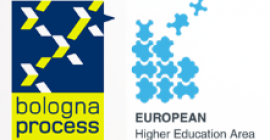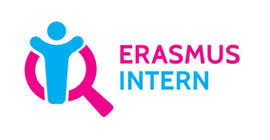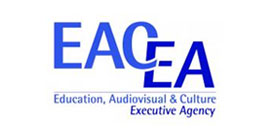Priorities of the Erasmus+ programme
Priorities of the Erasmus+ Programme
Inclusion and Diversity
The Programme seeks to promote equal opportunities and access, inclusion, diversity and fairness across all its actions. Organisations and the participants with fewer opportunities themselves are at the heart of these objectives and with these in mind, the programme puts mechanisms and resources at their disposal. When designing their projects and activities, organisations should have an inclusive approach, making them accessible to a diverse range of participants.
To achieve this, National Agencies are also vital to support projects with a view for these to being as inclusive and diverse as possible. Based on the overall principles and mechanisms at European level, National Agencies will draw up inclusion and diversity plans to best address the needs of participants with fewer opportunities and to support the organisations working with these target groups in their national context. At the same time, the SALTO Resource Centres supporting the implementation of the programme are also key players in promoting and rolling out inclusion and diversity measures, in particular as regards to gather knowledge and to conceive and run capacity-building activities for National Agency staff and programme beneficiaries. Likewise, the European Education and Culture Executive Agency (EACEA) plays an equally important role for the programme strands that are managed centrally. In third countries not associated to the Programme, EU Delegations and – where they exist - the National Erasmus+ Offices (NEOs) and Erasmus+ Focal Points are also key in bringing the programme closer to the target groups addressed by this Strategy.
In order to implement these principles, an Inclusion and Diversity Strategy1 covering all programme fields is devised to support an easier access to funding for a wider range of organisations, and to better reach out to more participants with fewer opportunities. It also sets up a framework for those projects, supported through the programme, which intend to work on inclusion and diversity related issues. This Strategy aims to help addressing the barriers different target groups may face in accessing such opportunities within Europe and beyond.
The list of such potential barriers, spelt out below, is not exhaustive and is meant to provide a reference in taking action with a view to increasing accessibility and outreach to people with fewer opportunities. These barriers can hinder their participation both as a stand-alone factor and in combination among them:
• Disabilities: This includes physical, mental, intellectual or sensory impairments which, in interaction with various barriers, may hinder someone’s full and effective participation in society on the same footing as others2 .
• Health problems: Barriers may result from health issues including severe illnesses, chronic diseases, or any other physical or mental health-related situation that prevents from participating in the programme.
• Barriers linked to education and training systems: Individuals struggling to perform in education and training systems for various reasons, early school-leavers, NEETs (people not in education, employment or training) and low-skilled adults may face barriers. Although other factors may play a role, these educational difficulties, while they may also be linked to personal circumstances, mostly result from an educational system which creates structural limitations and/or does not fully take into account the individual’s particular needs. Individuals can also face barriers to participation when the structure of curricula makes it difficult to undertake a learning or training mobility abroad as part of their studies.
• Cultural differences: While cultural differences may be perceived as barriers by people from any backgrounds, they can particularly affect people with fewer opportunities. Such differences may represent significant barriers to learning in general, all the more for people with a migrant or refugee background – especially newly-arrived migrants -, people belonging to a national or ethnic minority, sign language users, people with linguistic adaptation and cultural inclusion difficulties, etc. Being exposed to foreign languages and cultural differences when taking part in any kind of programme activities may put off individuals and somehow limit the benefits from their participation. And such cultural differences may even prevent potential participants from applying for support through the programme, thereby representing an entry barrier altogether.
• Social barriers: Social adjustment difficulties such as limited social competences, anti-social or high-risk behaviours, (former) offenders, (former) drug or alcohol abusers, or social marginalisation may represent a barrier. Other social barriers can stem from family circumstances, for instance being the first in the family to access higher education or being a parent (especially a single parent), a caregiver, a breadwinner or an orphan, or having lived or currently living in institutional care.
• Economic barriers: Economic disadvantage like a low standard of living, low income, learners who need to work to support themselves, dependence on the social welfare system, in long-term unemployment, precarious situations or poverty, being homeless, in debt or with financial problems, etc., may represent a barrier. Other difficulties may derive from the limited transferability of services (in particular support to people with fewer opportunities) that needs to be "mobile" together with the participants when going to a far place or, all the more, abroad.
• Barriers linked to discrimination: Barriers can occur as a result of discriminations linked to gender, age, ethnicity, religion, beliefs, sexual orientation, disability, or intersectional factors (a combination of two or several of the mentioned discrimination barriers).
• Geographical barriers: Living in remote or rural areas, on small islands or in peripheral/outermost regions3 , in urban suburbs, in less serviced areas (limited public transport, poor facilities) or less developed areas in third countries, etc., may constitute a barrier.
Digital Transformation
The COVID-19 pandemic shed further light on the importance of digital education for the digital transformation that Europe needs. In particular, it emphasised the increased need to harness the potential of digital technologies for teaching and learning and to develop digital skills for all. In line with the strategic priorities of the Digital Education Action Plan (2021-2027)4 , the Programme aims to support this endeavour to engage learners, educators, youth workers, young people and organisations in the path to digital transformation.
The programme will support the first strategic priority of the Action Plan, the development of a high-performing digital education ecosystem, by building capacity and critical understanding in all type of education and training institutions on how to exploit the opportunities offered by digital technologies for teaching and learning at all levels and for all sectors and to develop and implement digital transformation plans of educational institutions.
The programme will also support the second strategic priority of the Action Plan, by supporting actions aiming at enhancing digital skills and competence development at all levels of society and for everyone (including young people with fewer opportunities, students, job seekers and workers). The focus will be on fostering both basic and advanced digital skills as well as digital literacy, which has become essential for everyday life and for enabling people to navigate a world full of algorithms and participate fully in civil society and democracy.
In line with these two strategic priorities of the Action Plan, a European Digital Education Hub will be established to reinforce cooperation on digital education at the EU level and to contribute to exchange of good practices, co-creation and experimentation. The aim of the Hub will be to support Member States through closer cross-sectoral cooperation by addressing digital education in a lifelong learning perspective. The Hub will connect national authorities, the private sector, experts, researchers, education and training providers and civil society through a more agile development of policy and practice in digital education.
The Programme should reach out to a larger target group both within and beyond the Union by a greater use of information, communication and technology tools, combined use of physical mobility and virtual learning and virtual cooperation.
Environment and fight against climate change
Environment and climate action are key priorities for the EU now and in the future. The European Green Deal Communication 5 is the European new growth strategy and recognises the key role of schools, training institutions and universities to engage with pupils, parents, and the wider community on the changes needed for a successful transition to become climate neutral by 2050.
The Erasmus+ programme will be a key instrument for building knowledge, skills, and attitudes on climate change and support sustainable development both within the European Union and beyond. The programme will increase the number of mobility opportunities in green forward-looking domains which foster the development of competences, enhance career prospects and engage participants in areas which are strategic for sustainable growth, with special attention to rural development (sustainable farming, management of natural resources, soil protection, bio-agriculture). Moreover, Erasmus+, with mobility at its core, should strive for carbon-neutrality by promoting sustainable transport modes and more environmentally responsible behavior.
Environment and the fight against global warming will become a horizontal priority for the selection of projects. Priority will be given to projects aimed at developing competences in various green sectors, including those in the framework of the contribution from education and culture to sustainable development goals, developing green sectorial skills strategies and methodologies, future-oriented curricula, as well as initiatives that support the planned approaches of the participating organisations regarding environmental sustainability.
The Programme supports the use of innovative practices to make learners, staff and youth workers true actors of change (e.g. save resources, reduce energy use, waste and carbon footprint, opt for sustainable food and mobility choices, etc.). Priority will also be given to projects that – through education, training, youth and sport activities - enable behavioural changes for individual preferences, cultural values, awareness, and more generally support active engagement for sustainable development.
Therefore, organisations and participants involved should strive to incorporate green practices in all projects when designing the activity, which will encourage them to discuss and learn about environmental issues, to reflect about local actions and to come up with alternative greener ways of implementing their activities.
Platforms such as eTwinning and EPALE will continue to produce support materials and facilitate the exchange of effective educational practices and policies for environmental sustainability. Erasmus+ is also a powerful instrument to reach out to and engage with a wide spectrum of players in our society (schools, universities, VET providers, youth and sport organisations, NGOs, local and regional authorities, civil society organisations, etc.).
Participation in democratic life, common values and civic engagement
The Erasmus+ Programme addresses the citizens’ limited participation in its democratic processes and their lack of knowledge about the European Union, and tries to help them overcome the difficulties in actively engaging and participating in their communities or in the Union's political and social life. Strengthening citizens’ understanding of the European Union from an early age is crucial for the Union’s future. In addition to formal education, non-formal learning can enhance the citizens’ understanding of the European Union and foster a sense of belonging to it.
The Programme supports active citizenship and ethics in lifelong learning; it fosters the development of social and intercultural competences, critical thinking and media literacy. Priority is given to projects that offer opportunities for people’s participation in democratic life, social and civic engagement through formal or non-formal learning activities. The focus is put on raising awareness of and understanding the European Union context, notably as regards the common EU values, the principles of unity and diversity, as well as their social, cultural and historical heritage.
In the field of youth, a Youth Participation Strategy 6 has been designed to provide a common framework and support the use of the Programme to foster youth participation in democratic life. The Strategy aims to improve the quality of youth participation in the Programme and complements key EU Youth Policy documents, such as the EU Youth Strategy and the EU Youth Goals. The Youth Participation Toolkit 7 accompanies the Strategy and aims to, in practical terms, enhance the participation of young people in each of the actions of the Programme, by sharing know-how, recommendations, tools and practical guidance. The toolkit includes in its modules a special focus on how to cover the new horizontal priorities in the projects.









